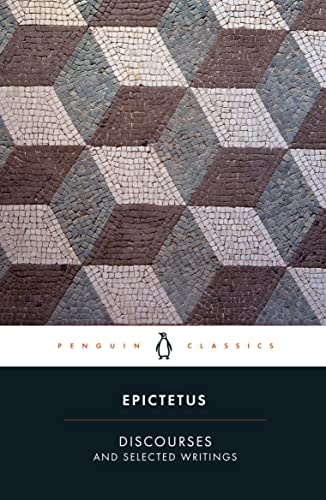Items related to Discourses and Selected Writings (Penguin Classics)

"synopsis" may belong to another edition of this title.
"About this title" may belong to another edition of this title.
- PublisherPenguin Classics
- Publication date2008
- ISBN 10 0140449469
- ISBN 13 9780140449464
- BindingPaperback
- Number of pages304
- Rating
Buy New
Learn more about this copy
Shipping:
£ 3.21
Within U.S.A.
Top Search Results from the AbeBooks Marketplace
Discourses and Selected Writings
Book Description Condition: New. pp. 304 9789357940733. Seller Inventory # 26661414
Discourses and Selected Writings
Book Description Condition: New. Seller Inventory # 5603308-n
Discourses and Selected Writings (Penguin Classics)
Book Description Condition: New. Brand New! Not Overstocks or Low Quality Book Club Editions! Direct From the Publisher! We're not a giant, faceless warehouse organization! We're a small town bookstore that loves books and loves it's customers! Buy from Lakeside Books!. Seller Inventory # OTF-S-9780140449464
Discourses and Selected Writings (Penguin Classics) by Epictetus [Paperback ]
Book Description Soft Cover. Condition: new. Seller Inventory # 9780140449464
Discourses and Selected Writings (Paperback or Softback)
Book Description Paperback or Softback. Condition: New. Discourses and Selected Writings 0.51. Book. Seller Inventory # BBS-9780140449464
Discourses and Selected Writings Format: Paperback
Book Description Condition: New. Brand New. Seller Inventory # 0140449469
Discourses and Selected Writings
Book Description Condition: New. pp. 304. Seller Inventory # 8235129
Discourses and Selected Writings (Penguin Classics)
Book Description Paperback. Condition: New. Brand New!. Seller Inventory # 0140449469
Discourses and Selected Writings Penguin Classics
Book Description PAP. Condition: New. New Book. Shipped from UK. Established seller since 2000. Seller Inventory # GB-9780140449464
Discourses and Selected Writings
Book Description paperback. Condition: New. Language: ENG. Seller Inventory # 9780140449464

